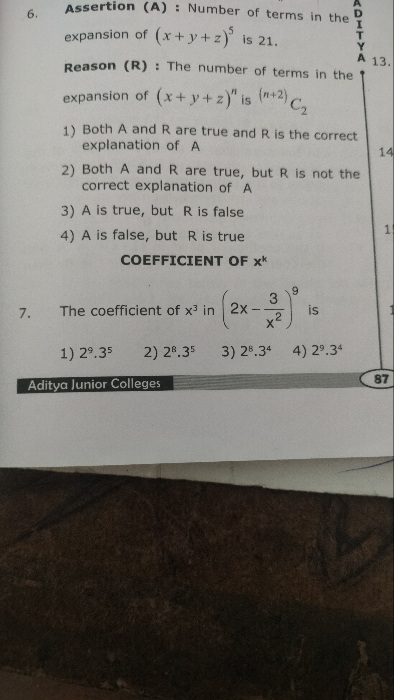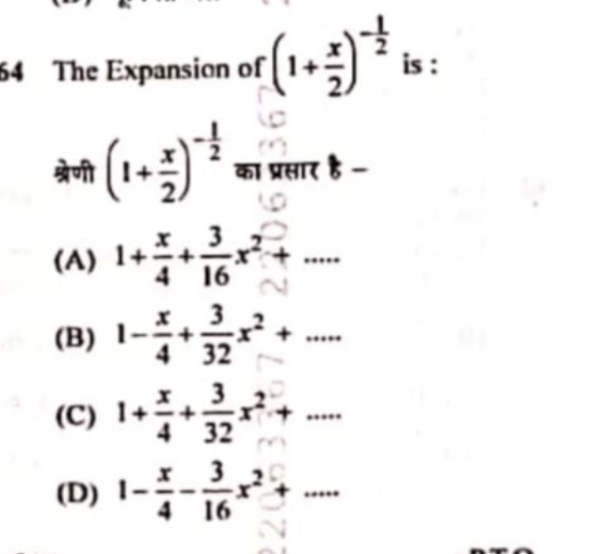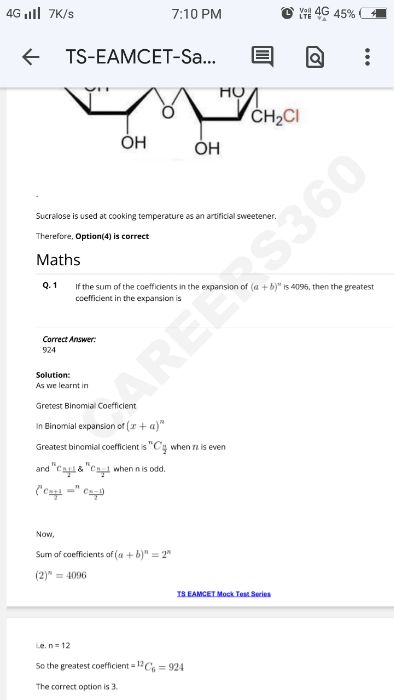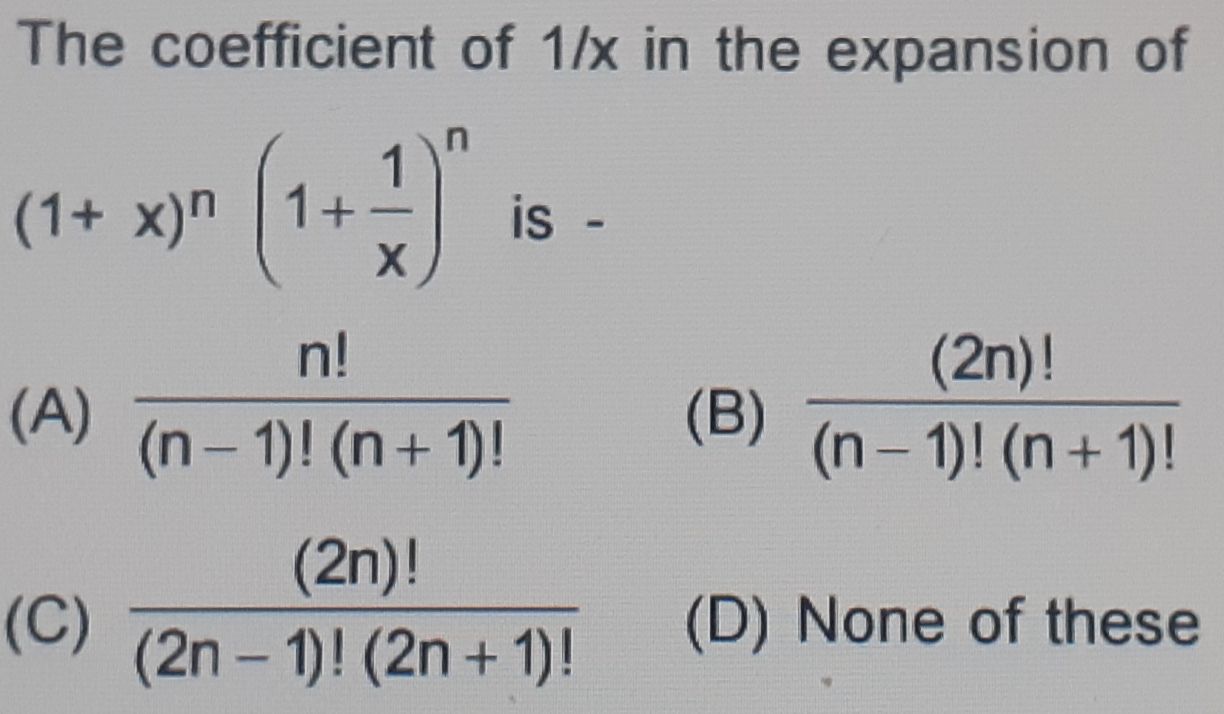JEE Class main Answered
The sum of the coefficients of three consecutive terms in the binomial expansion of (1 + x) ^ (n + 2) which are in the ratio 1:3:5, is equal to
[Main April 11, 2023 (II)]
(a) 25
(b) 63
(c) 41
(d) 92
Asked by manthapranavi2006 | 22 Jan, 2024, 08:25: PM
Let the coefficients of consecutive terms are 
 ...............................(1)
...............................(1)
 .....................(2)
.....................(2)
 .......................(3)
.......................(3)
From eqn.(1) and eqn.(2) , we get

from above expression, we get
(n-r+2) = 3 r + 3
n = 4 r + 1 ................................(4)
From eqn.(2) and eqn.(3) , we get

From above expression, we get
3(n-r+1) = 5(r+2)
n = (8/3)r + (7/3) ..........................(5)
By equating (4) and (5) and solving for r , we get r = 1
By substituting r =1 in eqn.(4) , we get n = 5
hence consecutive coefficients are 7C1 , 7C2 and 7C3
7C1 + 7C2 + 7C3 = 7 + 21 + 35 = 63
Answered by Thiyagarajan K | 23 Jan, 2024, 12:04: AM
JEE main - Maths
Asked by gprasanth178 | 06 Apr, 2024, 11:11: AM
JEE main - Maths
Asked by iitianneha100 | 02 Feb, 2024, 09:19: AM
JEE main - Maths
Asked by manthapranavi2006 | 22 Jan, 2024, 08:25: PM
JEE main - Maths
Asked by sonukushwaha1410 | 19 Dec, 2023, 07:19: AM
JEE main - Maths
Asked by ria102680 | 19 May, 2022, 07:41: AM
JEE main - Maths
Asked by rinamahuya | 25 Jan, 2020, 01:42: PM
JEE main - Maths
Asked by ramlala66 | 09 Dec, 2019, 01:07: PM
JEE main - Maths
Asked by laks78 | 13 May, 2019, 11:41: PM







